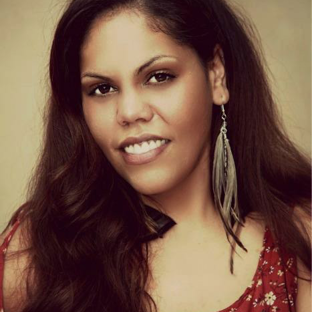The second weekend of Breakfast Club begins with a special Blak Wave event hosted by Rachael Maza. When it comes to cross-cultural relations, Australia musters a B minus. Often less. Cultural misunderstandings continue, yet an exciting new wave of Indigenous stories, ideas and perspectives is readily available on our screens and in our cities’ cultural programming. So as we strive for progress, the skill of listening – quietly, openly and generously – is more critical than ever. How do you listen?
Featuring guests Emily McDaniel (Assistant Curator of Aboriginal and Torres Strait Islander Art at the Art Gallery of New South Wales) and Lorna Munro (Tiddas Take Back).
Start your weekends with big ideas, breakfast by Yoghurt Culture and coffee from Small Batch by donation.
Next Wave Breakfast Club
Kickstart your brain with a dose of stimulation courtesy of Next Wave. Breakfast Club is your morning shot of artistic and intellectual insight. We’re not interested in expert-led formats or a room full of people thinking the same things; we want big opinions, good discussion and personal stories.
Featuring

Lorna Munro
Lorna Munro, or ‘Yilinhi’, is a Wiradjuri and Gamilaroi woman, multidisciplinary artist and regular radio and podcast host at Sydney’s ‘Radio Skid Row’. A long-time active member of her Redfern/Waterloo community, her work is informed by her passion and well-studied insight in areas such as culture, history, politics and popular culture.
Lorna has travelled the world showcasing her skills and distinctive style of poetry and political commentary. She was also the sole designer and creator of Sydney’s, and possibly 'Australia’s' first initiative to teach Aboriginal language through poetry in partnership with Red Room Poetry in 2015. Throughout her career she has been on stage, in films and on paper, namely compiling and editing Paper Dreaming: Our Stories Our Way for Cambridge University Press in 2015.
Lorna continues to work tirelessly mastering many art forms, raising funds, supporting and advocating for her community and her people on the local, national and international stage. She is a 2019 recipient of the Wheeler Centre’s Next Chapter writers’ scheme.

Paola Balla
Paola Balla is a Wemba-Wemba and Gunditjmara woman of Italian and Chinese heritage. She is an artist, curator, speaker, educator and cultural producer – having developed Footscray Community Arts Centre’s first Indigenous Arts and Cultural program, and as a Senior Curator in First Peoples exhibition, Melbourne Museum.
Recently winning the Three Dimensional Award at the Victorian Indigenous Art Awards 2014, her work is driven by social justice, addressing impacts of colonial trauma (particularly on women and children), and creating spaces of ownership and listening through creative practice.
Paola’s visual art is intimate; through familial and individual exploration, she turns her lens upon her immediate world and personal history. By examining the very definitions of what it is to be Aboriginal in an urban setting, Paola’s work challenges us to rethink preconceived attitudes and assumptions.

Rachael Maza
Rachael Maza is one of Australia’s most recognisable faces of the Australian film, television and theatre industry with performance credits including the Australian Film Institute (AFI) award-winning Radiance and the stage production of The Sapphires.
A Western Australian Academy of Performing Arts (WAAPA) graduate, Rachael’s performances have been acknowledged with a Green Room Award and a Sydney Theatre Critics Circle Award. Rachael has also worked as a presenter for ABC Message Stick and as an acting coach on films such as the multi-award-winning Rabbit Proof Fence.
Rachael’s first taste of directing was Stolen (1992) for ILBIJERRI Theatre Company, however, it wasn’t until 2009 that she rejoined the company as Artistic Director. Since then she has directed Sisters of Gelam (2009), Jack Charles V The Crown (2010), Foley (2011), Beautiful One Day (2012) and Which Way Home (2016).
Rachael currently sits on the board of the Australia Centre for the Moving Image (ACMI), the Circus Oz Indigenous Advisory Panel, Australian Opera Indigenous Advisory Panel, Balnaves Indigenous Playwrights Award Panel and the Green Room Awards Theatre Company Panel.
Jack Charles
Jack Charles is an actor, musician, potter, Koori elder and national treasure.
After Bastardy, a biographical documentary about Jack, was released in 2008, he rediscovered family members, and is now a respected elder of the Boon Wurrung clan and one of Australia's foremost Indigenous stage and film actors.
As a member of the Archie Roach Foundation’s Council of Elders, Jack has taken his place as a Kadaitcha man — a traditional lawman — and works to help Indigenous prisoners see a better life beyond jail.
Jack was in and out of Pentridge, and other jails, most of his life. He spent his 20th, 30th, 40th and 50th birthdays in jail. Under the Australian government’s forced assimilation program, he was taken from his Indigenous mother as a baby.
Along with Bob Maza, Jack was a co-founder of Australia’s first Indigenous theatre company, Nindethana, in 1972. He became a well-known performer, and, in those days, it was not uncommon for Jack to take a bow in some of the nation’s most prestigious theatres and then leave through the stage door looking for a bridge to sleep under.
Emily McDaniel
Emily McDaniel is a curator and artist from the Kalari Clan of the Wiradjuri nation in Central New South Wales. She is currently the Assistant Curator of Aboriginal and Torres Strait Islander Art at the Art Gallery of New South Wales.
She has also held numerous public programs and curatorial positions at the Museum of Contemporary Art, Biennale of Sydney and Art Gallery of NSW.
